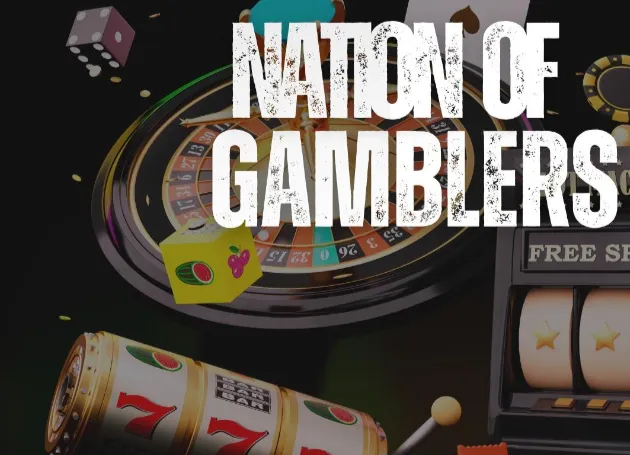The gamble that never pays: the quiet epidemic crushing SA's Indian communities
Hidden impact on families

South Africa's gambling industry has surged to R1.5 trillion in a year, raising concerns about addiction, debt, and the need for regulatory reforms.
Image: IOL Graphics
"I ONLY needed one win to cover my debt," said Rakesh (not his real name), a 32-year-old father from Chatsworth. Instead, he lost R18 000 over two months, maxed out three credit cards, and had his car repossessed.
His story isn’t unique. It’s one of thousands in a quiet epidemic unravelling families across South Africa, particularly within the Indian community. While gambling is often marketed as entertainment or a harmless thrill, its consequences are anything but. It is a parasitic industry that feeds off hope, exploits hardship, and entrenches poverty. In the absence of strong regulation, it is quietly degenerating entire communities and leaving devastation in its wake.
South Africa legalised gambling in 1996. Since then, the industry has ballooned into a multibillion-rand juggernaut. Once confined to flashy casinos and state-monitored facilities, gambling is now just a swipe away. Sports betting apps, online casinos, and virtual slot machines have turned mobile phones into 24-hour betting stations, accessible with no meaningful safeguards.
A 2025 Statistics South Africa report confirmed that gross gambling revenue was R59.3 billion in the 2023/24 financial year, a staggering 25.7% increase from the year before. And yet, South Africans spent R1.5 trillion on gambling activities, a figure that exceeds government health and education budgets combined. Most disturbingly, this spending is concentrated among low-to middle-income earners, especially those earning less than R10 000 per month, a cohort that includes many from historically disadvantaged Indian communities.
Areas like Chatsworth, Phoenix, and Lenasia, historically vibrant and resilient, are now facing a perfect storm: economic precarity, cultural silence around addiction, and aggressive gambling marketing. Mobile betting apps, neighbourhood betting shops, and casino loyalty programs specifically target these areas, exploiting the promise of fast money in households struggling to make ends meet.
Inside these communities, the damage is often hidden behind the curtains. Breadwinners gamble away their salaries before the 15th of the month. Children go to school without lunch. Women pawn jewellery to pay rent. Elderly pensioners lose their entire grant income on a single game of slots. And once the money is gone, it’s not only poverty that lingers, it’s shame, fear, and silence. Financial harm is only the beginning.
The spiral of gambling addiction triggers a chain of devastation that impacts every corner of family life. As losses pile up, stress and anxiety escalate. Many turn to alcohol and substance abuse as a coping mechanism. In already strained households, this leads to an increase in gender-based violence, emotional abuse, and intergenerational trauma. Children grow up in homes where violence and instability become the norm. In many reported cases, mothers and wives are forced to bear the emotional and financial brunt of their partners' addiction, often without support or recourse.
Counsellors in affected areas confirm a growing link between gambling and mental health breakdowns, marital collapse, and even suicide ideation. According to SANCA, gambling addiction now ranks among the top five presenting issues in several of its branches, with spikes among women, pensioners, and young men under 25. The social impact cannot be overstated. Gambling is not just wrecking bank accounts; it's tearing apart the emotional and ethical fabric of families.
Gambling corporations cement their influence by sponsoring local events, community sports tournaments, and even religious programmes, creating a toxic illusion of social investment. This strategy insulates them from criticism while deepening community dependency on an industry that is draining it dry. South Africa’s gambling legislation has not kept pace with the industry’s evolution. Licensing is fragmented across national and provincial levels. There are no income or affordability checks, no limits on advertising, and no integrated harm-reduction strategy.
While casinos and betting apps generate massive profit margins, they invest virtually nothing into treatment services or community recovery. The state, meanwhile, boasts about tax revenue from gambling, but remains silent on the social cost: broken homes, deepening poverty, and rising suicide rates.This is no longer a niche issue. Gambling is a public health crisis, and Indian communities are among the hardest hit. If we are serious about reversing this collapse, decisive, coordinated action is non-negotiable.
We must urgently enforce a ban on gambling advertising, particularly on mobile and digital platforms that target low-income households. The National Gambling Board must be empowered to regulate online platforms with daily loss caps, income-based betting limits, and real-time age verification. At a grassroots level, we need culturally competent education programmes, led by community elders, religious leaders, and teachers, to break the silence and de-stigmatise seeking help. Local NGOs and treatment centres, such as SANCA, must be adequately funded to provide multilingual, community-rooted recovery services.
Finally, financial literacy campaigns tailored for working-class communities must be embedded in schools, churches, and homes because gambling isn’t just about money; it’s about dignity, safety, and the futures of entire families. We no longer allow cigarette ads in schools or alcohol brands on kids’ sports kits. Why then do we let betting companies flood our airwaves, phones, and billboards, especially in vulnerable communities?
The Indian community in South Africa has survived indenture, apartheid, and economic exclusion. It shouldn't have to survive this either. Gambling is not an innocent pastime. It is a predatory, systemic betrayal packaged as fun but delivered in shame.And the longer we stay silent, the more we gamble with the future of entire generations.

Professor Aradhana Ramnund-Mansingh
Image: File
Professor Aradhana Ramnund-Mansingh is the Manager School of Business MANCOSA, empowerment coach for women and former HR executive.
** The views expressed do not necessarily reflect the views of IOL or Independent Media.
Related Topics: